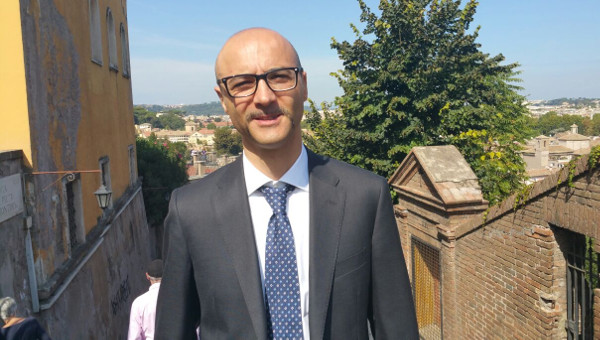Professor Francesco Ruscitti to Publish Paper in Mathematical Social Sciences
Economics professor Francesco Ruscitti’s research paper “On social welfare orders satisfying anonymity and asymptotic density-one Pareto” has been accepted for publication in Mathematical Social Sciences (Vol. 111, pages 26–33, 2021). It is co-authored with Ram Sewak Dubey and Giorgio Laguzzi.
We asked Professor Ruscitti to briefly describe the topic of his research paper:

Professor Francesco Ruscitti
Economists are increasingly called upon to evaluate and formulate policies with a planning time horizon that extends over the distant future. This is because there are policies that affect the well-being of present and future generations, such as those concerning global climate change, non-renewable natural resources, radioactive waste disposal, loss of biodiversity, groundwater pollution, mineral depletion, and many others. Now, suppose that you are tasked with choosing the “best” course of action from the set of aforementioned policies. What policy would you select and implement? Why? How would you go about this business? To answer this question, it helps to associate a policy of this sort (or its outcome/consequences) with an infinite utility stream (the time sequence of present and future generations’ welfare). One can then use given ‘social preferences’ defined over such streams to perform pairwise comparison and ranking of all feasible policies. What kind of requests, or ethical principles, should social preferences satisfy? Let’s say intergenerational equity and efficiency, i.e., all generations should be treated equally (no discounting of one generation’s welfare relative to another’s), and, if moving from policy A to policy B makes ‘some’ generations better-off (and no generation worse-off), then policy B is to be socially preferred to policy A. Now, a related question naturally arises: ‘how many’ generations should experience a welfare gain, and how far in time from each other should the better-off generations be, in order for policy B to be ranked above policy A? It might be reasonable to require that there be ‘a large number’ of better-off generations that are ‘close’ in time to one other. Another question immediately comes to mind, then: do there exist social preferences that respect the equity and efficiency properties outlined above? If so, what do they look like? Can they be represented numerically or just explicitly described for the sake of policy-making?
The authors of the paper establish easily verifiable conditions under which the answer to the foregoing question is in the affirmative. However, it turns out that, arguably, these conditions are somewhat restrictive. The bottom line is that when it comes to evaluating policies that give rise to long-term consequences, it can be rather problematic to hold the principles of ‘equity’ and ‘efficiency’ together.
Professor Francesco Ruscitti‘s expertise and interests are in Microeconomics and Economic Theory. In sum, his past and current research involves the use of mathematical methods and models for the analysis of market economies in a general equilibrium setting. Recently, Dr. Ruscitti’s research interests have branched out into Social Choice Theory and Welfare Economics. In Fall 2021 he will be teaching EC 201 Principles of Microeconomics, EC 301 Intermediate Microeconomics, and EC 327 Game Theory.





